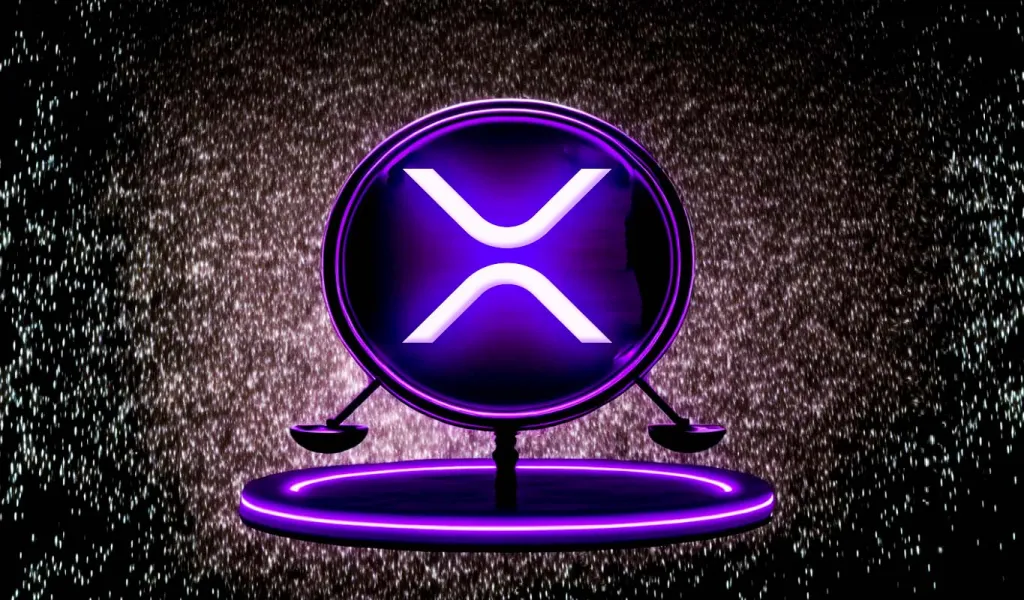 The Ghanaian fintech startup Zeepay recently secured a $3 million equity investment from the venture capital firm, Verdant Capital Hybrid Fund. Zeepay plans to use the raised funds to bolster its standing as it prepares for significant growth in 2024. Solidifying Zeepay’s Position in Africa The Ghanaian fintech startup, Zeepay, recently secured a $3 million […]
The Ghanaian fintech startup Zeepay recently secured a $3 million equity investment from the venture capital firm, Verdant Capital Hybrid Fund. Zeepay plans to use the raised funds to bolster its standing as it prepares for significant growth in 2024. Solidifying Zeepay’s Position in Africa The Ghanaian fintech startup, Zeepay, recently secured a $3 million […]
Top US-based crypto exchange Coinbase is unveiling instant global transfers of the stablecoin USDC via social media apps. In a new blog post, Coinbase says that users of its crypto wallet can now instantly send money across the world without having to deal with the complexities of bank transfers. According to Coinbase, the money can […]
The post Coinbase Wallet Unveils Global USDC Transfers via WhatsApp, Telegram, Facebook and Other Social Media Apps appeared first on The Daily Hodl.

The Solomons join tiny island nations worldwide at the forefront of CBDC development. Soc A new CBDC joins the very large crowd.
The Central Bank of Solomon Islands has launched a proof-of-concept for a central bank digital currency called Bokolo Cash.
Bokolo Cash will be worth one Solomon Islands dollar.
Wholesale transfers between commercial banks and simulated cross-border payments and remittances will also be tested. Users will undergo “two-tier” Know Your Customer verification, according to Soramitsu.
Related: Small Islands, big problems: Can Bitcoin fix this? Cointelegraph Cape Verde video
Bokolo Cash will operate locally on a tailor-made blockchain based on Hyperledger’s Iroha.
The project was initiated on Nov. Solomon Islands Prime Minister Manasseh Sogavare said:

Navin Gupta, managing director of South Asia, Middle East and North Africa (MENA) at Ripple, told Cointelegraph that education and introducing non-speculative use cases can help crypto companies navigate through varying regulations.
A Ripple executive has re-emphasized the need to adopt a technology-neutral approach for more effective and adaptable guardrails as global regulators grapple with cryptocurrency rules.
At the recent Ripple Swell 2023 event, Navin Gupta, managing director of South Asia, Middle East and North Africa (MENA) at Ripple, told Cointelegraph that the industry should be regulated based on activity rather than the technology used. He said:
“We don’t want people to think about regulating the technology… We want regulators, or anybody for that matter, to be technology-neutral. It doesn’t matter if the [activity] is happening in blockchain or traditionally.”
“[If] somebody is going payments, then it needs to be regulated as a payment instrument. If something is a security, it needs to be regulated as a security instrument,” he added.
Intention turns into action, and action turns into building, collaboration and partnerships. @Navinblockchain shares how #RippleSwell in Dubai brings people together to drive crypto innovation. pic.twitter.com/qS7AiWMJMV
— Ripple (@Ripple) November 9, 2023
For Gupta, the focus should be on the purpose and use of the virtual asset rather than the underlying technology to create flexible regulations, ensuring that they remain relevant as blockchain technology evolves.
Related: Brad Garlinghouse jabs at maximalists: ‘It will be a multichain world’
The unique characteristics and global portability of cryptocurrencies — with their different token types — have proved challenging for regulators. In response, the Group of Twenty last month unanimously accepted a crypto regulatory roadmap proposed by the International Monetary Fund and the Financial Stability Board in September that advocates for comprehensive oversight of crypto globally.
But while the MENA region has jurisdictions such as the United Arab Emirates that have taken an open stance toward the new asset class, some nations, including the Arab superpower Saudi Arabia, have yet to introduce clear rules, with some, like Egypt and Morocco, completely banning Bitcoin (BTC) and other cryptocurrencies altogether.
According to Gupta, besides educating and working with regulators to help them better understand the industry, introducing non-speculative crypto use cases, such as crypto remittances and payments, is key to navigating the region’s varying legal landscapes.
“Whenever you talk about non-speculative use cases and how crypto can play a part, regulators are all ears because there you’re not going to say that people are speculating to double their money. [You’re] going to say, ‘How can we make it easier for citizens to get a better benefit that they’re not getting today.’”
“Education and utility-based projects where there is real utility for usage is how we can get regulators onboard,” he added.
Given the large remittances market in Africa, Ripple announced a partnership with mobile payments provider Onafriq in November that will open new payment corridors between 27 African countries and Australia, the United Kingdom and the Gulf Cooperation Council.
Magazine: China’s surprise NFT move, Hong Kong’s $15M Bitcoin fund: Asia Express

The deal aims to enable faster, cheaper payments between 27 African countries, working with three Onafriq partners.
Ripple will power new payment corridors between 27 African countries and Australia, the United Kingdom and the Gulf Cooperation Council (GCC) under a deal with African mobile payments provider Onafriq.
Onafriq will use Ripple Payments' blockchain technology along with with three partnering companies. Zazi Transfer will provide transfer services to Australia, PayAngel will serve the U.K. and Pyypl will serve GCC member states Bahrain, Kuwait, Oman, Qatar, Saudi Arabia and the United Arab Emirates.
Remittances make up a large part of cross-border payments to Africa. Ripple senior vice president of global customer success Aaron Sears told Cointelegraph:
“Sub-Saharan Africa has proven to be a bright spot of crypto adoption, with consumers in countries like Nigeria, Kenya, and South Africa employing digital assets for real-world, day-to-day purposes.”
Pyypl is already a Ripple partner in its on-demand liquidity (ODL) solution, and Onafriq is reported to have integrated ODL as well.
Related: Hashing It Out: What happens when crypto meets fintech in Africa?
Onafriq was known as MFS Africa until early November. It changed its name because of its purchase of U.S. mobile payment software developer Global Technology Partners in June 2022. MFS is a trademarked company name in the United States. Onafriq struck a deal with Western Union on cross-border transactions earlier this year.
It’s great to see you all in Dubai!
— Ripple (@Ripple) November 7, 2023
Day 1 of #RippleSwell kicks off tomorrow. pic.twitter.com/QTVGniRlBx
Ripple Payments was known as RippleNet before its latest upgrade, which was announced at Ripple’s Swell customer event in Dubai on Nov. 8.
Magazine: Crypto Banter’s Ran Neuner says Ripple is ‘despicable,’ tips hat to ZachXBT: Hall of Flame

Crypto remittances are a lifeline for many people who need to send money to their loved ones, as they provide faster, cheaper and more transparent transactions than traditional methods.
As the cryptocurrency market moves sideways and amid a deepening stablecoin exodus, the sector remains a vital lifeline for many sending money to loved ones while dodging extremely high fees that can be life-changing over time.
Cryptocurrency remittances have been seeing their adoption grow, and the low volatility seen in the space over the last few months might just be the silver lining that encourages more people to transition from mere spectators to active users, harnessing the true potential of this financial avenue.
Compared to traditional methods, crypto remittances sport numerous advantages, which include faster processing time, lower transaction costs and more transparency. Speaking to Cointelegraph, Brendan Berry, Ripple’s head of payments products, noted that for both fiat and crypto, the basic tenets of payment success are “speed, low-cost settlement, security and reliability.”
Berry noted that from a macro perspective, existing domestic payment rails work “relatively well” but face difficulties when cross-border payments are made. Berry added:
“There is no third party or global central bank, so the world has created this complex system of correspondent banking that is costly, error-prone, slow and leaves trillions of dollars in locked-up capital.”
He said that remittances have become a lifeline for millions worldwide and can be greatly improved through new technologies like crypto and blockchain. According to World Bank data, remittances grew 5% in 2022 to reach $682 billion.
Berry added that the high cost of remittances — ranging from 5% to 7% worldwide — and their slow speeds burden millions of families. He stated that the global economy “may seem like an always-online global marketplace, but traditional finance still operates on a 9 to 5, Monday to Friday, schedule.”
The World Bank estimates the global average cost of sending $200 is 6.5% — a massive amount of money for families living on $200 or less a month.

Speaking to Cointelegraph, a Coinbase spokesperson said that whether consumers use banks, money transfer operators or post offices, the impact of fees on their remittance payments is enormous, ranging from 10.8% with banks to 5.5% with post offices.
The spokesperson added that the U.S. average fee rate is 6.18%, which means that every year, Americans, on average, spend “close to $12 billion on remittance fees.” They added:
“Cryptocurrencies like Bitcoin or Ether can greatly cut the cost of sending money internationally by about 96.7% vs. the current system. Sending Bitcoin to another wallet costs an average of $1.50 per transaction, and Ether costs an average of $0.75 per transaction.”
It’s worth pointing out, however, that security concerns associated with custodying cryptocurrencies remain a deterrent for many to enter the space, as managing the private keys to a cryptocurrency wallet can be a challenge, especially to those less tech-savvy. On top of that, the consumer protections offered by the traditional financial system may leave some at ease despite the high fees.
Coinbase added that the time cost is also significant, with the average remittance taking between one and 10 days to settle, while cryptocurrency transactions take on average just 10 minutes.
Adding to this, a spokesperson for Circle — the firm behind the USD Coin (USDC) stablecoin — told Cointelegraph that a key feature of blockchain-powered remittances is “accessibility and inclusivity, requiring only a phone and internet connection to transfer funds across borders and at low-cost.”
Moreover, Lesley Chavkin, head of policy at the Stellar Development Foundation, a nonprofit organization supporting the Stellar network, told Cointelegraph that for remittances sent on a blockchain, preliminary data from “a small, limited-scope pilot focused on the United States to Colombia payment corridor” showed fees were half of those paid for traditional remittances.
Recent: From payments to DeFi: A closer look at the evolving stablecoin ecosystem
As transactions on the network scale up, Chavkin said, remittance fees could drop even more, furthering their advantages. Pavel Matveev, the co-founder and CEO of Wirex, told Cointelegraph that these don’t have to navigate through numerous intermediaries.
Despite their advantages, cryptocurrency remittances aren’t as widespread as one may think. For one, ease of use isn’t at the point of mass adoption, while the cryptocurrency market’s volatility keeps many on the sidelines.
Ripple’s Berry said that accessibility and user-friendliness are “critical components for the mainstream adoption of crypto remittances.”
User experience, he said, has been a problem for the industry but is arguably the easiest one to solve. He added that legacy payment solutions may appear to be more user-friendly with the use of modern interfaces “that marginally improve the customer experience, which creates the illusion of advancement,” while in reality, there has “been little improvement to the foundational infrastructure that underpins our global financial system which would ultimately unlock true progress and by extension the user experience.”
Nevertheless, Brendan conceded that while cryptocurrencies can be faster and cheaper for sending funds, a “successful remittance solution must also help the customer off-ramp funds in the currency of their choice.” He added:
“The ability for users to transfer value from fiat to crypto or vice versa has historically been a challenge at both the individual and enterprise levels. While individual users have more options than ever before through more than 600 crypto exchanges globally, enterprise-grade off-ramp solutions are sparse.”
Indeed, one has to consider the costs associated with existing cryptocurrency infrastructure and how it interacts with the traditional financial system. While receiving a cryptocurrency transaction may be fast and cheap, paying with crypto isn’t as easy.
Commenting on the situation for Cointelegraph, Gero Piskov, card and payments manager at digital wealth platform Yield App, said that in “regions where crypto remittances thrive, accessibility and UX [user experience] have indeed been hurdles, which have hindered broader adoption.”
Often, the solution involves converting cryptocurrencies into fiat currency, which may incur additional transactions, trading fees and potential withdrawal fees. Converting to fiat currency, however, may be a bigger challenge than it should be, especially in regions where crypto-to-fiat liquidity isn’t significant enough to not add more complexity to the process.
Speaking to Cointelegraph, a Binance spokesperson said that the World Bank’s Global Findex 2021 shows 42% of adults in Latin America and the Caribbean still lack access to a bank account, with the segment representing 24% of the total adult population.
Cryptocurrency solutions, the spokesperson said, have the “potential to fill this gap while also reducing the financial transaction’s time and costs for people who already participate in the traditional system.”
In countries where paying with crypto with one solution or another is possible, users may be exposed to heightened spread they may not be aware of, as well as crypto market volatility. This volatility can completely nullify the advantages of paying less for the transaction itself.
Binance’s spokesperson added that the main goal of blockchain and cryptocurrencies is to simplify the entire process for users; hence, industry players are “dedicating significant efforts and resources into innovating and enhancing its platform with the users’ experience in mind.”
However, they noted that given the nascency of blockchain technology, there are still people without the technical know-how to process crypto transactions efficiently. The spokesperson said:
“One solution that has emerged would be liquidity services on particular blockchains. These international crypto liquidity service providers facilitate the transfer of money from one country to another, with cryptocurrencies acting as a bridge.”
In these blockchain-based liquidity services, Binance’s spokesperson clarified, a sender would transfer money in their own local currency, while the recipient would receive it in their local currency. Such a service would make the process friction and almost instantaneous for users across all backgrounds, they said.
Simplifying remittances and greatly reducing their cost is extremely important, especially for people losing between 5% and 10% of the money they need to survive on fees. This means that remittances have actually become a use case for digital assets, as noted by a Circle representative who spoke to Cointelegraph and added that crypto is expanding access to financial services across the globe.
Binance’s spokesperson seemingly corroborated the words from Circle, saying that remittances are “the primary economic lifeline for millions of families worldwide, and a major driver of economic growth for developing countries, totaling $589 billion in 2021,” according to World Bank data.

Cryptocurrencies are improving the lives of people relying on remittances, according to experts Cointelegraph spoke to, thanks to the numerous advantages being offered. One example the Stellar Development Foundation’s Chavkin pointed to us is Félix.
Félix is a Whatsapp-based payments platform in Latin America that allows users to send money through an AI chatbot on Meta’s popular messaging platform. According to the platform’s co-founder and CEO Manuel Godoy, Félix uses USDC on the Stellar network to boil the process of remittances down to “seconds.”
Chavkin noted that the figure showing remittance payments grew by about 5% in 2022 “represents only recorded transactions; the true number is most likely significantly higher.” She concluded:
“Providing solutions that are faster, cheaper and more accessible is one tool to help reduce poverty and improve outcomes. Focusing on crypto remittances as a solution is critical to serving these populations.”
Wirex CEO Matveev told Cointelegraph that more may be coming in the near future as technology evolves and collaborations with traditional financial institutions are expected to, along with regulatory developments, make cryptocurrency remittances “even more widely accepted and efficient.”
The costs associated with reentering the fiat currency system may nevertheless hinder the advantages of cryptocurrency remittances. Conversion costs, according to Ripple’s Berry, may not necessarily impact remitters as various companies who support crypto-enabled payments have protections to avoid exposing users to volatility. Blockchain-based transactions, on the other hand, don’t.
Berry noted that forex transactions are also susceptible to volatility, with smaller fiat currencies being more volatile. The cryptocurrency space is nevertheless well-known for its volatility, which could keep some remitters on the traditional financial system, deciding that the fees are less problematic than the volatility and the challenges associated with using cryptocurrency for payments.
On top of that, the uncertain regulatory environment surrounding cryptocurrencies in various jurisdictions only further complicates their adoption as remittance solutions.
Magazine: Slumdog billionaire: Incredible rags-to-riches tale of Polygon’s Sandeep Nailwal
Cryptocurrency remittances are effectively revolutionizing the way individuals across the globe who can rely on them exchange value, offering unprecedented advantages over traditional systems, with the crypto realm standing as a beacon of development for those currently losing part of their money to the high fees of a decades-old system.
While challenges persist, especially in terms of user experience and widespread adoption, a future in which cryptocurrency remittances do even more to alleviate poverty likely awaits, adding a new use case to an asset class already helping millions preserve value.
Cryptocurrency education and awareness, however, still has a long way to go to help crypto remittances become a viable long-term solution, as specialized knowledge is necessary to safely use these assets regularly.

Ripple Labs’ payments platform is expanding into Southeast Asia as the crypto firm partners with a prominent Japanese financial services titan. According to a new press release, Ripple Labs is collaborating with SBI Remit, the remittance arm of SBI Group to provide international remittances to the Philippines, Vietnam, and Indonesia using the digital asset XRP. […]
The post XRP Remittance Tech Expanded to Three Countries by $138,000,000,000 Financial Giant’s Subsidiary appeared first on The Daily Hodl.

The bank used the Hedera network to settle payments in South Korean, Thai and Taiwanese currencies in real-time in its second stablecoin pilot project.
South Korea’s Shinhan Bank has completed its second proof-of-concept using stablecoins for international remittances. Siam Commercial Bank’s SCB TechX unit and an unnamed Taiwanese financial institution also participated in the project.
The project carried out real-time settlement and foreign exchange integration with the banks’ national currencies on the Hedera network. The project was compatible with the Ethereum Virtual Machine (EVM), opening it up to use by a host of other stablecoins.
Shinhan Bank conducted its first proof-of-concept project in November 2021 in conjunction with South Africa’s Standard Bank, although that bank’s identity was also not immediately disclosed.
Shinhan Bank explained at the time that it minted a pool of South Korean won-backed stablecoins, and the partnering bank minted a stablecoin in its local currency. A user was able to buy Shinhan-minted stablecoins and send them to an account at the partner bank. That bank provided the funds in the locally denominated stablecoin, which the user could then exchange.
Related: Crypto could eliminate 97% of traditional remittance fees: Coinbase
Byunghee Kim, head of the blockchain division at Shinhan Bank, said, “We are pleased to have demonstrated how the use of Hedera’s EVM-compatible technology helps eliminate intermediaries, reduce costs, and speed up the remittance process."
1/ In a continuation of their work on #DLT-enabled cross-border remittances, @ShinhanBankENG - in collaboration with SCB TechX & other financial institutions - has today announced the successful completion of a #stablecoin remittances PoC pilot on #Hedera.https://t.co/OUAxOfU2U4
— Hedera (@hedera) July 18, 2023
Remittances are noncommercial cross-border payments. They are typically slow, expensive and hard to track. An International Monetary Fund official stated earlier this year that remittance providers collect $45 billion in fees annually.
The use of stablecoins provides an alternative to central bank digital currency (CBDC) in Web3 remittance solutions. There are numerous CBDC cross-border payment projects, including some designed specifically for remittances, but few CBDCs have been launched, so that technology remains tentative. Meanwhile, stablecoin-based remittance solutions are becoming more common, especially in Latin America.
Magazine: Inside South Korea’s wild plan to dominate the metaverse

The move provides PAX coin access to Mexico’s 3.1 million-plus cryptocurrency users.
Blockchain fintech company Paxos and online marketplace MercadoLibre have entered a partnership to bring the Pax Dollar (USDP) stablecoin to Mexico via the MercadoPago payment service on June 28.
According to a press release shared with Cointelegraph, USDP will be available to all MercadoPago customers throughout Mexico. While the company is based in the United States — with offices in New York, London and Singapore — more than 60% of its active wallets support customers throughout Latin America.
Mexico currently boasts a 9.3% penetration rate for cryptocurrency use, with more than 12 million users, per a report from Statista. By 2027, analysts estimate more than 20 million people in Mexico will hold crypto, bringing the total penetration to 14.6%.
The introduction of USDP to the MercadoPago payment ecosystem adds stablecoin access to the service’s options in Mexico, a feature that could provide much-needed relief from extraneous fees related to remittances for a significant number of users.
While Venezuela may lead the way in cryptocurrency adoption among Latin American nations, Mexico ranks highest in total number of transactions. This is largely due to the number of remittances, with only India receiving more.
Related: Why crypto remittance companies are flocking to Mexico
Paxos is well known in fintech through its various dealings, including a partnership with PayPal, and its noteworthiness as the first blockchain company to receive approval from the U.S. Securities and Exchange Commission (SEC) to settle U.S.-listed securities.
In February 2023, however, Paxos received a Wells notice indicating that its Binance-based stablecoin, Binance USD (BUSD), would be labeled a security and, as such, should have been registered.
As Cointelegraph reported in February, the cryptocurrency community was baffled by the notice, and Paxos issued a statement vehemently disagreeing with the SEC’s notion that BUSD should be classified as a security.
In other Paxos news, recently launched cryptocurrency exchange EDX has decided to switch custody providers. The exchange will drop its current partner, Paxos, and instead tap Anchorage Digital. According to a Paxos spokesperson, EDX made the change in order to facilitate a shift toward a noncustodial offering at launch.
 TBD and the Africa-focused cryptocurrency exchange platform Yellow Card recently partnered to launch a fiat on and off-ramp that enables payments in some 16 African countries through Bitcoin rails. The objective of this arrangement is to make cross-border payments not only more affordable and accessible, but compliant as well. Hedging Against Inflation With BTC TBD, […]
TBD and the Africa-focused cryptocurrency exchange platform Yellow Card recently partnered to launch a fiat on and off-ramp that enables payments in some 16 African countries through Bitcoin rails. The objective of this arrangement is to make cross-border payments not only more affordable and accessible, but compliant as well. Hedging Against Inflation With BTC TBD, […]